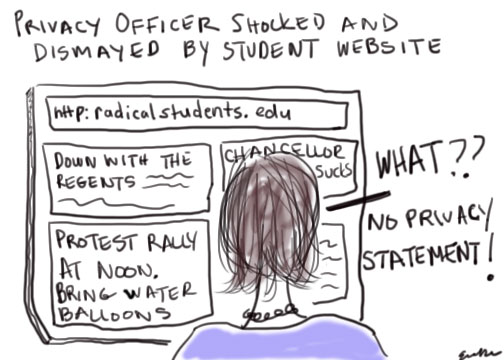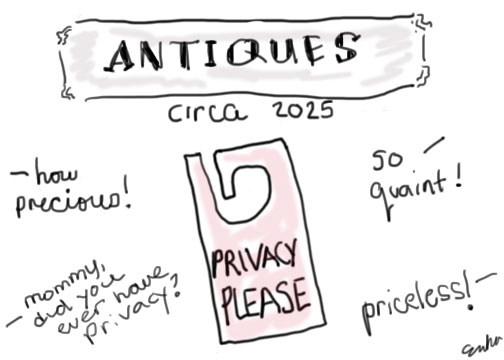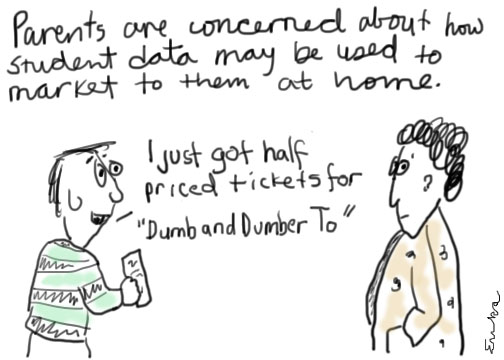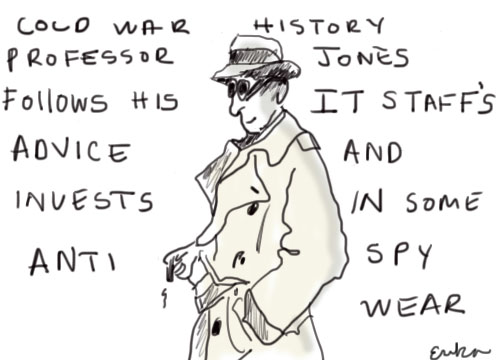Guest Bloggers: Lisa Ho, Matt Wolf, and Erika Donald, University of California, Berkeley


My daughter needed a little bit of prodding to pick which colleges she wanted to tour over spring break. When she showed me a list of universities ranked by a tool offered through her school, her boyfriend warned, "Be careful with those ranking websites." I waited for him to tell us that rankings don’t measure individual fit or other things that really matter. But then he said something unexpected: "Because if a college knows you really want to come, they’ll give you less financial aid." Whoa...What? Where did he hear that?

Of course, colleges offer scholarships to entice desirable students to come. Athletic scholarships and merit scholarships have been around since my day, and on our recent trip we heard about music scholarships and debate scholarships. That all felt normal. Need-based adjustments to tuition are also clearly necessary to make college accessible for people from all socioeconomic backgrounds. But the boyfriend’s caution suggested something entirely different: Analyzing my daughter’s online activity to figure out how much she wanted to go to a college, and from that, adjusting her financial aid package to extract the highest price our family would be willing to pay...that got me worked up. Some data privacy violations creep us out -- in a big way. But this would be a data privacy violation where it really hurts -- the pocketbook. Where was the consent for secondary use of her personal browsing data? Are colleges really doing demand-based pricing [http://www.bigdatarepublic.com/author.asp?section_id=2701&doc_id=255810]?
In his book “Who Owns the Future,” Jaron Lanier predicts that the future will belong to those with the biggest, best connected computers collecting vast amounts of “big data” gathered from real people. So back to the boyfriend’s warning. Was this just a Millennial's overly suspicious view of the world: We have no privacy, so assume everything we click and view can and will be used against us? I know campuses are using data analytics, but call it naïveté, I really want to believe that ethics in higher education would prevent a student’s high interest in attending a school from reducing her financial aid award.

Our campus information security and contracts expert, Matt Wolf, regularly tries to pop my idealism bubble with real-world scenarios. Case example: Schools pay for e-mail with student and employee personal data. He points out how university community members are a choice consumer segment. Providers, whether ingeniously or ingenuously, do connect our institutionally provided identities to our personal accounts. I may think I’m keeping my personal and work life separate by shopping with a personal account on personal time, but the big data owners of the future don’t distinguish between my multiple identities that I’d rather keep distinct. How do I justify believing Higher Ed lives up to a higher ethical standard: for the greater good and best interests of students -- when universities barter with our privacy in the face of economic pressures?
****
After an invigorating day of policy drafting with a group of UC information security folks, I brought up the question of demand-based tuition prices over sushi. Had they ever heard of using data analytics from online activity to determine prospective students’ interest and set financial aid packages?
No one had any news on that, but a colleague who had just finished the college selection ordeal with her son said she heard that the order students list schools on the FAFSA (financial aid application) might impact acceptance decisions, because the order is a strong indicator of how interested a student is in the school. Institutions that carefully guard their acceptance rate statistics may only accept students who list their school first. Whoa, wait! If you don't list the school high enough, you hurt your chances of acceptance. If you list it too high, you hurt your chances of getting financial aid. You can’t even game that system! I started to think of the situation as the college application version of the boyfriend dilemma: Do you tell him he’s your #1, or keep him guessing? But instead of risking looking socially desperate by letting on too much, you risk getting strapped with a larger debt burden.
Still, it was all just hearsay.
The next morning I found a link in my inbox from one of my dinner companions: “Some colleges are denying admission and perhaps reducing financial aid to students based on a single, non-financial, non-academic question that students submit to the federal government on their applications for student aid.”
It wasn’t about web browsing analytics, and it didn’t give hard evidence of demand-based tuition, but it was enough to make me admit that the boyfriend knew what he was talking about this time. Another dose of skepticism and cynicism leaked into my bubble of idealism.

Yet, as a technology professional in Higher Ed, I feel a duty to carve out a niche of optimism by remembering that Higher Ed is not a single entity, and we all can play a role in influencing these privacy-impacting decisions at our institutions. Privacy is a defining ethical issue of our time and profession. What will we each do to help our universities assign appropriate value to privacy? Will the campus privacy policy just become marketing collateral for a new “trust-washing” campaign, or will we cultivate and legitimately earn our communities' trust?
Lisa Ho, Matt Wolf, and Erika Donald are colleagues at UC Berkeley in Information Security and Policy. When they are not dissecting and debating the finer points of information security, privacy, and IT-related policy, laws, contracts, and user education, you may find them listening to or playing gamelan music, riding bicycles, walking the cat, or racing through dog agility courses. (We think Matt does that with his dog, but we’ll have to update the blog post when we get confirmation.)
